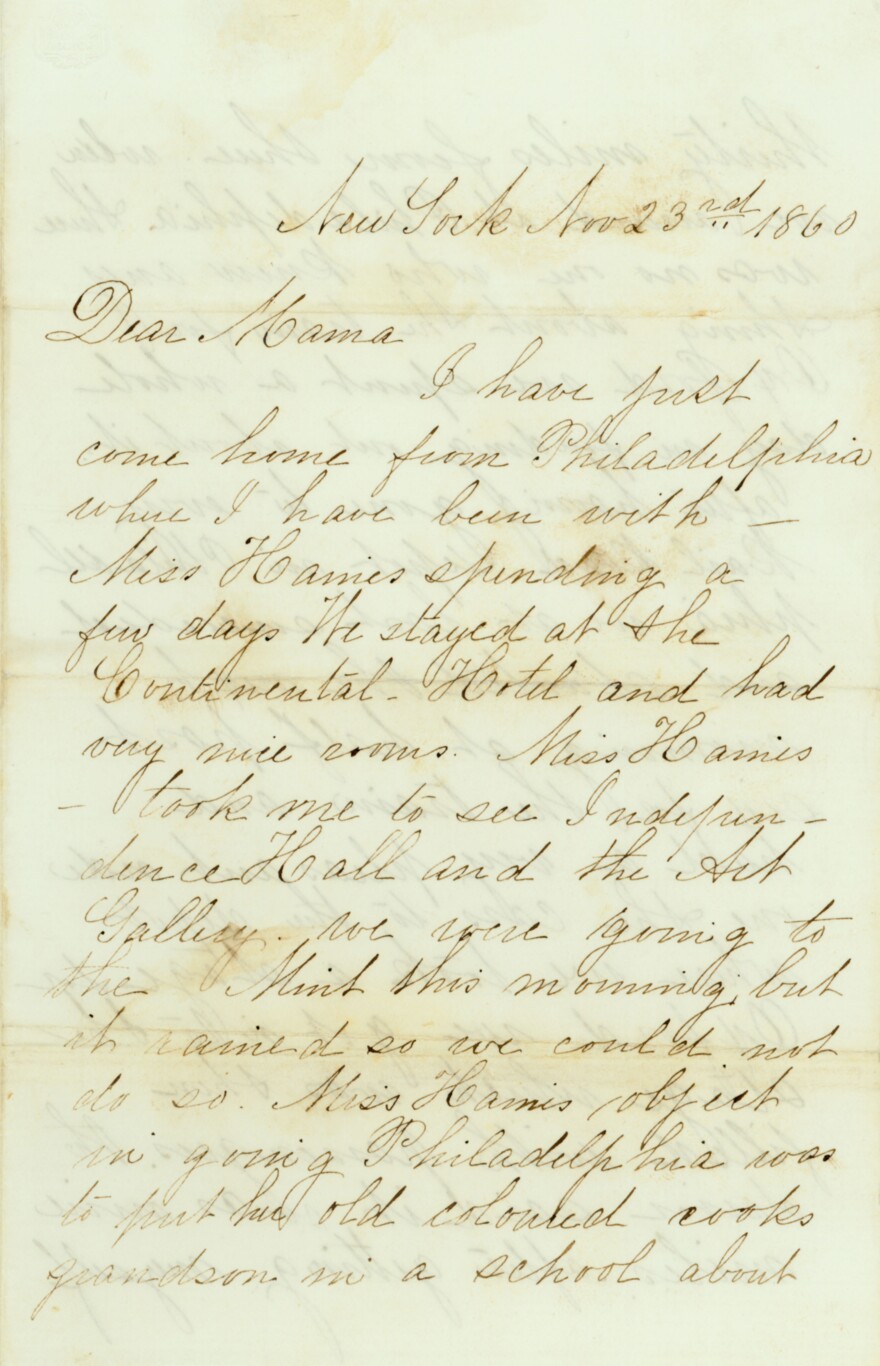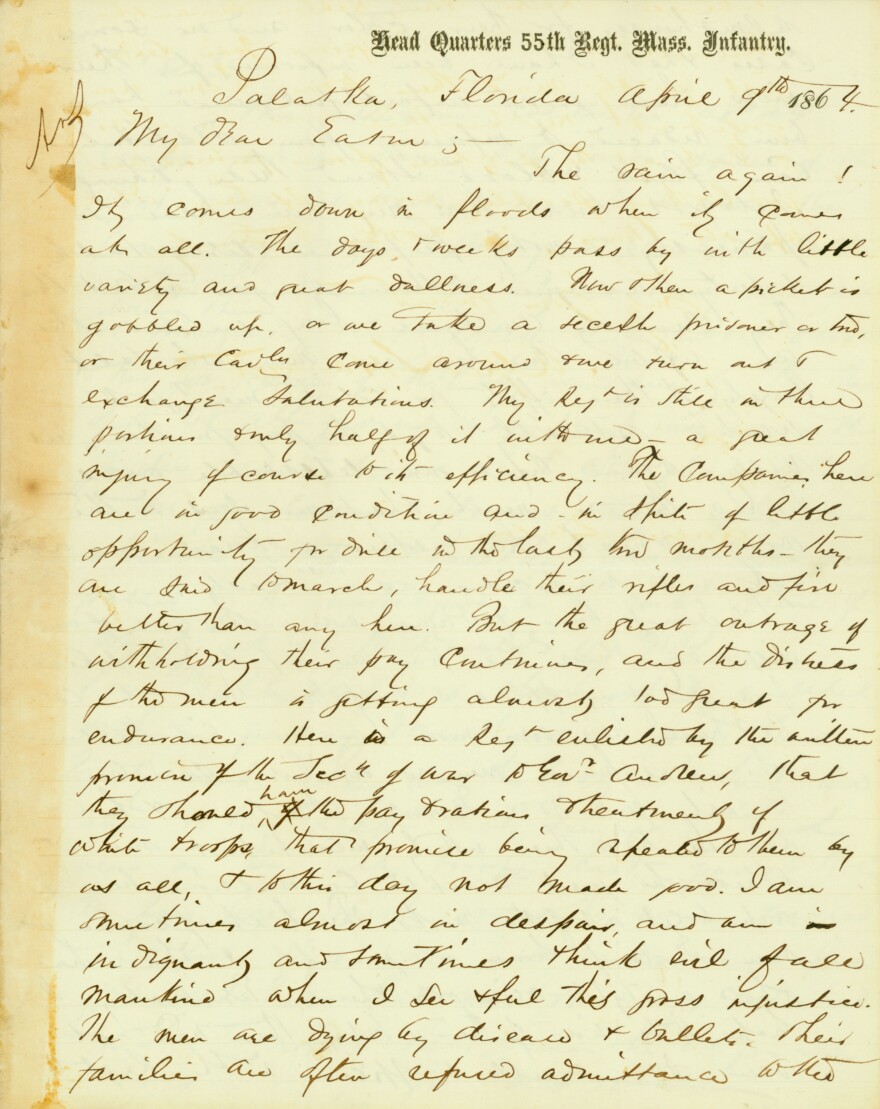In the age of emails, texts and tweets, we take a look back to a time when the handwritten letter was the primary way people communicated across long distances.
In his book To the Letter: A Celebration of the Lost Art of Letter Writing, author Simon Garfield examines the role of letters throughout history – a role that now must adapt to current technology.
The Missouri History Museum has archived letters of past generations of St. Louisans which give a first-hand account of their daily lives. Christopher Gordon, director of the Museum's Library & Collections, also joined the conversation. You can find a sample below.
Demanding pay for black soldiers during the Civil War
(Read this letter's transcript - provided by the Missouri History Museum)
"I lost my breakfast on a stagecoach"
(Read this letter's transcript - provided by the Missouri History Museum)

Garfield feels that we lose two things when we email instead of write letters: depth of writing and the ability to record history through personal accounts.
“When we write a letter, we sit down, it’s a very certain act. We get our pen out, we get paper, we have maybe a postage stamp at the ready…We write in a full and certain way, in a way we don’t when we dash off an email,” said Garfield.
“The big question a lot of archivists are now asking is how are we going to archive our future history?” said Garfield. “We can obviously store emails, print out Twitter timelines…But I think if we bother to do that, if things don’t get lost behind firewalls and if we can access passwords after someone dies…are we going to be left with the same sort of thing as if we had found a cache of letters?”
Christopher Gordon of the Missouri History Museum is also concerned about how letters will be archived in the future.
“One thing that we miss in the digital formats that we see now is the strike out,” said Gordon. “Sometimes what was left out or was stricken out of a letter said a lot about the emotion that was there. Now with delete buttons, that’s gone.”
St. Louis on the Air provides discussion about issues and concerns facing the St. Louis area. The show is produced by Mary Edwards and Alex Heuer and hosted by veteran journalist Don Marsh.




